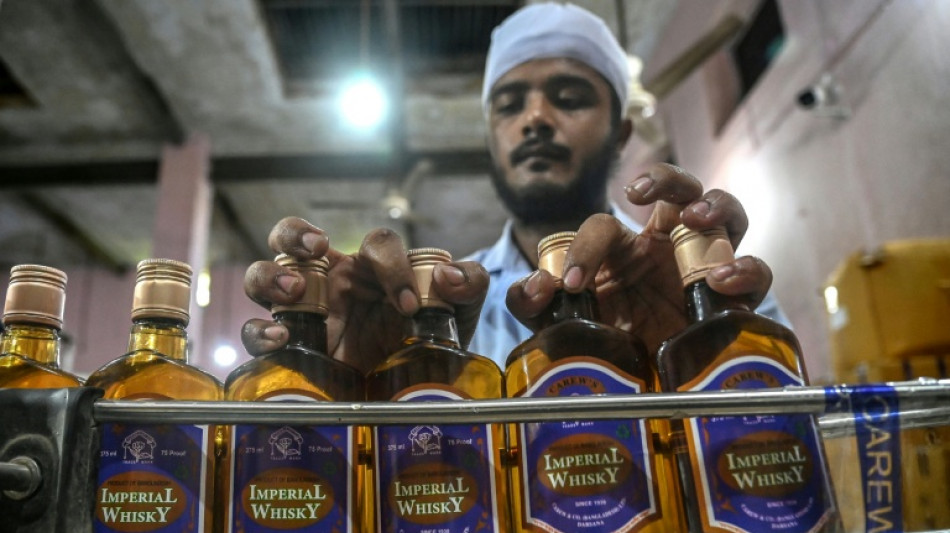
-
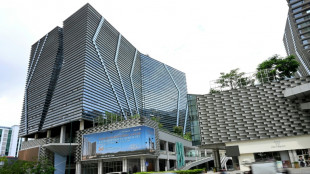 Cambodia's Prince Group denies link to scams after asset seizures
Cambodia's Prince Group denies link to scams after asset seizures
-
Stokes bats away criticism of England's Ashes preparations

-
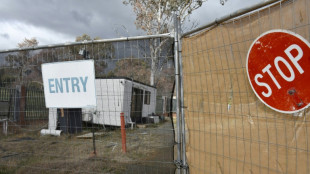 Russia loses legal bid to build embassy next to Australian parliament
Russia loses legal bid to build embassy next to Australian parliament
-
Ethiopia's invasive prosopis tree chokes livelihoods and land

-
 'We're already living in science fiction': The neurotech revolution
'We're already living in science fiction': The neurotech revolution
-
Ousted Gabon leader's wife and son sentenced to 20 years for graft

-
 Asian markets up on hopes over shutdown deal, rate cut
Asian markets up on hopes over shutdown deal, rate cut
-
Bangladesh's liquor industry a surprising success
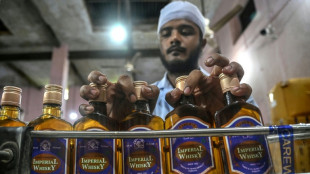
-
 Nepal's war victims watch political changes with fragile hope
Nepal's war victims watch political changes with fragile hope
-
France aim to secure World Cup place as Paris marks attacks anniversary

-
 Russia jails teen musician over anti-war street songs for third time
Russia jails teen musician over anti-war street songs for third time
-
Demand for air con set to triple by 2050, warns UN

-
 Trump claims 'very big victory' as shutdown vote nears
Trump claims 'very big victory' as shutdown vote nears
-
Indigenous protesters clash with security at COP30 summit in Brazil

-
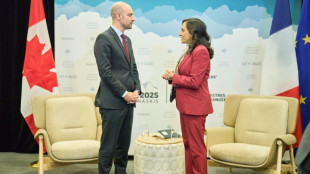 France warns over Caribbean 'instability' as G7 talks open
France warns over Caribbean 'instability' as G7 talks open
-
Brazil tries to avoid climate bust up at COP30 summit

-
 Ethiopia set to host UN's 2027 climate summit, 2026 undecided
Ethiopia set to host UN's 2027 climate summit, 2026 undecided
-
Close Zelensky ally accused of orchestrating major graft scheme

-
 'Trump is temporary': California governor Newsom seizes COP30 spotlight
'Trump is temporary': California governor Newsom seizes COP30 spotlight
-
US stocks end mostly higher despite drop in Nvidia

-
 Arrival of US aircraft carrier fuels Venezuelan fears of attack
Arrival of US aircraft carrier fuels Venezuelan fears of attack
-
Iraqi voters turn out in numbers as region watches on

-
 Pakistan upstage Sri Lanka in first ODI as Agha and Rauf shine
Pakistan upstage Sri Lanka in first ODI as Agha and Rauf shine
-
Macron warns any planned West Bank annexation a 'red line'

-
 BBC must fight, says outgoing chief as Trump threatens to sue
BBC must fight, says outgoing chief as Trump threatens to sue
-
UN aid chief hails talks with Sudan army leader

-
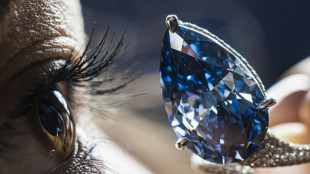 Mellon Blue diamond sells for $25.6 million
Mellon Blue diamond sells for $25.6 million
-
Google unveils $6.4 bn investment in Germany

-
 US aircraft carrier in Latin America fuels Venezuelan fears of attack
US aircraft carrier in Latin America fuels Venezuelan fears of attack
-
For many Syrians, Sharaa's US visit marks new beginning

-
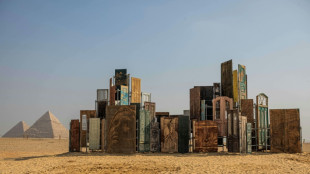 Monumental art displayed in shade of Egypt's pyramids
Monumental art displayed in shade of Egypt's pyramids
-
Stocks mixed as tech titans struggle

-
 California governor Newsom slams Trump at COP30
California governor Newsom slams Trump at COP30
-
Alcaraz fights back to beat Fritz at ATP Finals

-
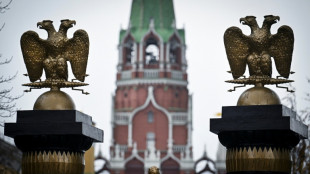 Russia offers US nuclear talks in bid to ease tensions
Russia offers US nuclear talks in bid to ease tensions
-
Turkey seeks more than 2,000 years behind bars for Erdogan rival

-
 UK court jails Chinese bitcoin fraudster for over 11 years
UK court jails Chinese bitcoin fraudster for over 11 years
-
Fanfare as Guinea launches enormous Simandou iron ore mine

-
 Iraqis vote in general election at crucial regional moment
Iraqis vote in general election at crucial regional moment
-
Shock follows carnage after suicide bombing in Islamabad

-
 Ford returns to pull England strings against All Blacks
Ford returns to pull England strings against All Blacks
-
Stocks mixed as end to US shutdown appears closer

-
 BBC must 'fight' for its journalism, outgoing chief says amid Trump lawsuit threat
BBC must 'fight' for its journalism, outgoing chief says amid Trump lawsuit threat
-
Atalanta turn to Palladino after Juric sacking

-
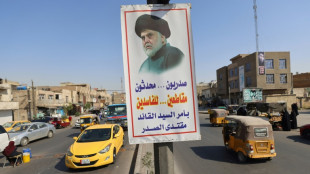 'Sayyid says': Influential Shiite cleric's supporters boycott Iraq vote
'Sayyid says': Influential Shiite cleric's supporters boycott Iraq vote
-
'It's un-British': lawmakers raise concerns about aquarium penguins
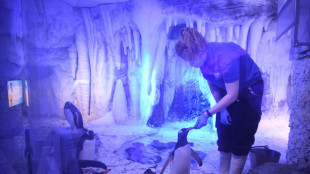
-
 Prosecutor files 142 charges against Istanbul mayor, a top Erdogan critic
Prosecutor files 142 charges against Istanbul mayor, a top Erdogan critic
-
Agha hundred lifts Pakistan to 299-5 in 1st Sri Lanka ODI

-
 German court rules against OpenAI in copyright case
German court rules against OpenAI in copyright case
-
Calls for 'mano dura' as crime-rattled Chile votes for president


Bangladesh's liquor industry a surprising success
Syrupy aromas drift across the guarded compound of Bangladesh's only licensed distillery, a state-owned producer posting record profits in the Muslim-majority nation, where Islamists are staging a political comeback.
That's a surprising success in a country where the vast majority of its 170 million people are barred from buying its products.
Alcohol is tightly regulated in Bangladesh, the world's fourth most populous Muslim nation.
Carew and Co, established under British rule 87 years ago, produced $10 million in profit in 2024–25, and paid the same again in taxes, said managing director Rabbik Hasan.
"This is the highest profit since the company's establishment," Hasan told AFP. "We expect further growth in the coming year."
Bangladesh has faced turbulent times.
A mass uprising in August 2024 ousted the autocratic government of Sheikh Hasina, who had been criticised for extensive human rights abuses and had taken a hard line against Islamist movements during her 15-year rule.
Since she fled to India -- defying extradition orders to attend her crimes against humanity trial -- Islamist groups have grown increasingly assertive.
Alcohol, forbidden under Islam, has escaped their condemnation, but they have demanded restrictions on cultural activities they consider "anti-Islamic" -- including music and theatre festivals, women's football matches, and kite-flying celebrations.
An interim government is leading the South Asian nation towards elections expected in February 2026.
But at the sprawling Darsana facility near the Indian border, humming machines fill bottles.
Carew's popular brands range from the golden-hued "Imperial Whisky" to "Tsarina Vodka", distilled from sugarcane with flavourings imported from the Netherlands.
"We never encourage anyone to drink -- we only sell to those who already do," Hassan added.
- 'Zero doubt' -
Buying an alcoholic drink in Bangladesh requires a government permit, issued only to those aged over 21, and mainly granted to non-Muslims, who require a medical prescription.
"Alcohol is forbidden," said Hasan Maruf, director general of the Department of Narcotics Control, but added that "exemptions exist for certain communities".
That includes foreigners and workers on the country's tea estates, where Carew's low-cost liquor is popular among the 150,000 mainly Hindu workers.
Around 10 percent of Bangladeshi are not Muslims, mainly Hindus.
This year, only the company's sugar division suffered losses -- with its mills also producing fertiliser, vinegar, and industrial alcohol.
Carew provides the only source of regulated liquor -- alongside a separate brewery producing Hunter, Bangladesh's only beer, owned by the Jamuna Group conglomerate.
Those are reliable products in a country where illegal moonshine stills -- or the dangerous adulteration of imported liquor -- has been a persistent problem.
Fish trader Prince Mamun, 42, said he has been drinking Carew for two decades.
"It's cheaper and safer than imported brands," he said, adding that he holds a permit and drinks about 20 days a month.
"I drink Carew products with zero doubt."
Shah Alam, a devout Muslim and 38-year employee in the bottling unit, has never tasted the products.
Yet he praises the distillery for its contributions to the local community, from education to employment.
"I don't drink anything from here, nor am I involved with the selling," Alam, 59, said. "All I am doing here is my job."
D.Qudsi--SF-PST
